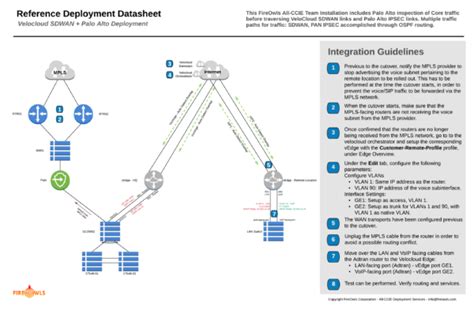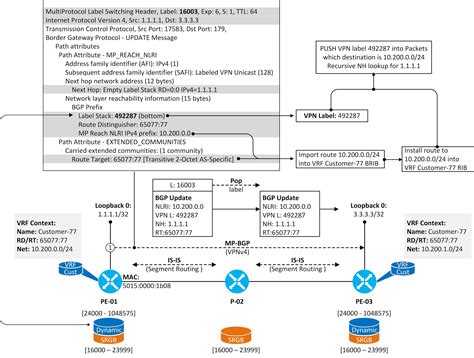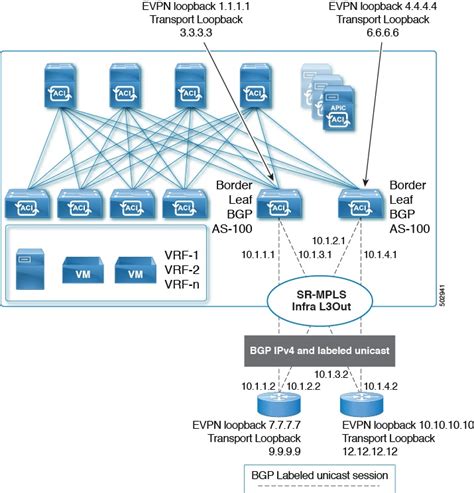In today’s interconnected world, understanding the basics of network configuration, particularly the 192.168.1 network, is crucial for building and maintaining professional relationships. This article explores how knowledge of this common IP address can enhance your networking capabilities and improve communication within professional settings. By mastering the essentials of network setup and maintenance, you can ensure smooth and efficient interactions, which are vital for career growth and successful relationship management. Whether you are a tech enthusiast or a professional looking to leverage technical skills for advancement, understanding network fundamentals is an invaluable asset that can significantly impact your ability to connect and collaborate effectively in the modern workplace.
gamesweed.com will lead an exploration of this topic in detail.
1. Why Understanding 192.168.1 is Important for Networking
The 192.168.1 network is a cornerstone of networking, commonly used as the default IP address range for home and office routers. Mastering this network is essential for anyone seeking to bolster their technical proficiency and networking expertise. This IP range belongs to the private address space designated by the Internet Engineering Task Force (IETF), rendering it unroutable on the public internet. This characteristic makes it perfectly suited for local area network (LAN) setups.
Understanding the fundamentals of the 192.168.1 network allows professionals to effectively manage and troubleshoot their own network environments. This knowledge empowers them to prevent common networking issues, such as IP conflicts or connectivity problems, which can disrupt communication and collaboration. Furthermore, familiarity with these network basics facilitates the establishment of secure and efficient networks, ensuring smooth and secure data flow between devices.
In the context of building and maintaining professional relationships, understanding the 192.168.1 network demonstrates a proactive approach to problem-solving and technical competence. It equips professionals with the skills to create reliable, well-maintained networks, which is essential in environments where effective communication and quick access to information are key. This foundational knowledge can also serve as a stepping stone for more advanced networking concepts, further enhancing one’s professional value.

2. How 192.168.1 Impacts Network Configuration
The 192.168.1 network is crucial for configuring networks, especially within private settings. This IP address range, part of the private address space, is commonly used as the default for home and office routers. Its main function in network configuration is to establish the internal structure of a local area network (LAN).
During network configuration, routers commonly use the 192.168.1.0/24 address range, encompassing IP addresses from 192.168.1.1 to 192.168.1.254. This configuration enables seamless communication between devices within the network while maintaining a secure separation from the public internet. A clear comprehension of this address range is paramount for successfully configuring and managing network devices like computers, printers, and smartphones. It ensures that each device receives a unique IP address, preventing address conflicts and enabling smooth communication within the network.
The 192.168.1 network plays a crucial role in establishing robust network security. By meticulously configuring this network, administrators can effectively segment the network, enforce firewall rules, and implement access controls. This meticulous approach safeguards internal data, ensuring that only authorized devices and users can access sensitive information. Consequently, the use of the 192.168.1 range for effective network configuration enhances both the functionality and security of the network, fostering a stable and reliable communication environment.

3. What Professional Benefits Come from Mastering Network Basics
A solid grasp of network fundamentals, especially within the 192.168.1 network, brings substantial professional advantages. By understanding these basics, individuals gain the skills necessary to effectively manage and troubleshoot network environments, ensuring smoother and more reliable operations. This proficiency is highly valued in a wide range of roles, from IT support to network administration, where the ability to configure and maintain internal networks is essential.
A strong understanding of network fundamentals empowers professionals to swiftly identify and resolve issues like IP conflicts and connectivity problems. This not only minimizes downtime and maximizes productivity but also showcases a proactive approach to problem-solving, a highly valued trait in any work environment.
Furthermore, a thorough understanding of network fundamentals empowers professionals to actively participate in strategic network planning and implementation. This expertise allows them to enhance overall network performance and security, contributing to a more robust and secure infrastructure. Such contributions are highly valued by organizations, leading to increased career advancement opportunities.
In conclusion, developing a strong understanding of network fundamentals not only strengthens technical proficiency but also offers a significant advantage in the job market. By demonstrating a dedication to maintaining and enhancing network systems, individuals signal their commitment to growth in the dynamic technology sector.

4. Why Efficient Network Setup Enhances Communication
A well-functioning network is essential for smooth and reliable communication in any professional setting. When a network is set up correctly, like the 192.168.1 network, devices can connect flawlessly and share information without any disruptions. A properly organized network minimizes issues such as slow data transfer speeds, connection outages, and IP address conflicts, all of which can impede effective communication.
Optimizing network settings, such as assigning proper IP addresses and configuring routers for efficient traffic management, allows professionals to ensure smooth data flow across the network. This reliability is crucial for various communication tools, including email, instant messaging, and video conferencing, which all rely on stable network connections for proper functioning.
Furthermore, a well-designed network infrastructure enables swift access to shared resources, like files and printers, thereby enhancing collaboration and productivity. It also reinforces network security, safeguarding sensitive information from unauthorized access and guaranteeing secure communication.
A well-configured network is the foundation of efficient communication. It provides a reliable, fast, and secure connection for all networked devices, enabling seamless communication and data transfer. This translates into streamlined workflows, fewer disruptions, and a more productive and collaborative work environment.
5. How to Utilize Network Knowledge in Professional Settings
In professional settings, leveraging network knowledge means using technical skills to optimize network performance and boost overall productivity. Comprehending the 192.168.1 network and comparable configurations equips professionals with the ability to proficiently set up, administer, and resolve issues within internal networks. This skillset is essential for ensuring seamless communication and collaboration among team members.
Practical applications of network knowledge include optimizing network settings to meet specific business requirements. This could involve configuring routers to prioritize crucial applications or managing IP address assignments to prevent conflicts. Moreover, network knowledge is essential for implementing security measures, such as setting up firewalls and access controls to safeguard sensitive information.
Professionals can utilize their networking expertise to offer support and training to colleagues, guaranteeing everyone understands how to use network resources effectively. This knowledge also assists in planning and implementing network upgrades or expansions, ensuring that technology aligns with organizational objectives.
Network expertise is a valuable asset in the workplace. It boosts operational efficiency, strengthens security measures, and fosters effective communication. This combination of benefits makes network expertise essential for both individual career growth and organizational success.
6. What Strategies Can Improve Networking Skills Using Technical Knowledge
To effectively leverage technical knowledge for improved networking, several key strategies must be employed. These strategies aim to bridge the gap between technical expertise and the ability to cultivate strong professional relationships.
A thorough understanding of network fundamentals, including the 192.168.1 network, enables professionals to communicate more effectively with IT teams and stakeholders. This technical knowledge facilitates clear discussions about network problems and solutions, promoting better collaboration.
Secondly, active participation in tech forums, workshops, and industry events is a valuable way to strengthen networking skills. These settings provide opportunities for sharing knowledge, learning about emerging trends, and forging connections with other professionals in the field.
Furthermore, volunteering to help with network-related problems or initiatives within your organization showcases your technical abilities and commitment to collaboration. This proactive attitude can establish you as a dependable and well-informed member of the team.
Staying current on the newest networking technologies and best practices is another effective strategy. This ongoing learning process not only keeps your skills sharp, but it also makes you a valuable resource for others seeking guidance.
Lastly, using networking knowledge to mentor colleagues or provide training sessions
7. Why Regular Network Maintenance is Crucial for Relationship Management
Regular network maintenance is crucial for strong relationship management in professional environments. A well-maintained network guarantees smooth and secure operation, directly impacting team communication and collaboration. This proactive approach minimizes the risk of technical issues like connectivity problems, slow data transfer, or security breaches, all of which can disrupt workflows and hinder relationship building.
Keeping a network running smoothly requires consistent maintenance. This includes monitoring network performance, updating software regularly, and promptly addressing potential security vulnerabilities. By taking a proactive approach, we can prevent small problems from turning into major disruptions, minimizing downtime and ensuring a reliable communication infrastructure.
Moreover, regular maintenance plays a crucial role in optimizing network resource utilization, guaranteeing the smooth operation of all devices and applications. This enhanced reliability facilitates seamless collaboration, enabling team members to access shared resources and communicate without disruptions.
Regular network maintenance demonstrates a commitment to network health, which in turn reflects a dedication to a productive and secure work environment. This reliability builds trust and strengthens professional relationships, as colleagues and clients can depend on consistent and efficient network performance to accomplish their objectives.
8. How to Leverage Network Skills for Career Advancement
To propel your career forward through networking, it’s crucial to showcase your technical expertise and use it to drive professional growth. This can be achieved by highlighting your proficiency with network fundamentals, such as the 192.168.1 network, on your resume and during interviews, setting you apart from the competition. Demonstrating your ability to manage and optimize networks significantly enhances your value to potential employers.
Secondly, by actively seeking opportunities to put your networking skills to use in real-world projects or organizational initiatives, you can gain increased responsibilities and recognition. Volunteering to lead network-related projects or improvements demonstrates your leadership and problem-solving skills.
Finally, pursuing certifications and continuing education in networking and related fields can enhance your credentials and open new opportunities for advancement.
Building relationships with professionals in your field and attending industry events can open doors to valuable connections and career opportunities. Effective networking not only enhances your current job performance but also sets you up for future career growth and development.
Mastering the 192.168.1 network and related technical skills is essential for enhancing professional relationships and career growth. By understanding network fundamentals, optimizing configurations, and maintaining efficient networks, you can improve communication, demonstrate technical competence, and leverage your skills for advancement. This expertise positions you as a valuable asset in any professional setting.
gamesweed.com